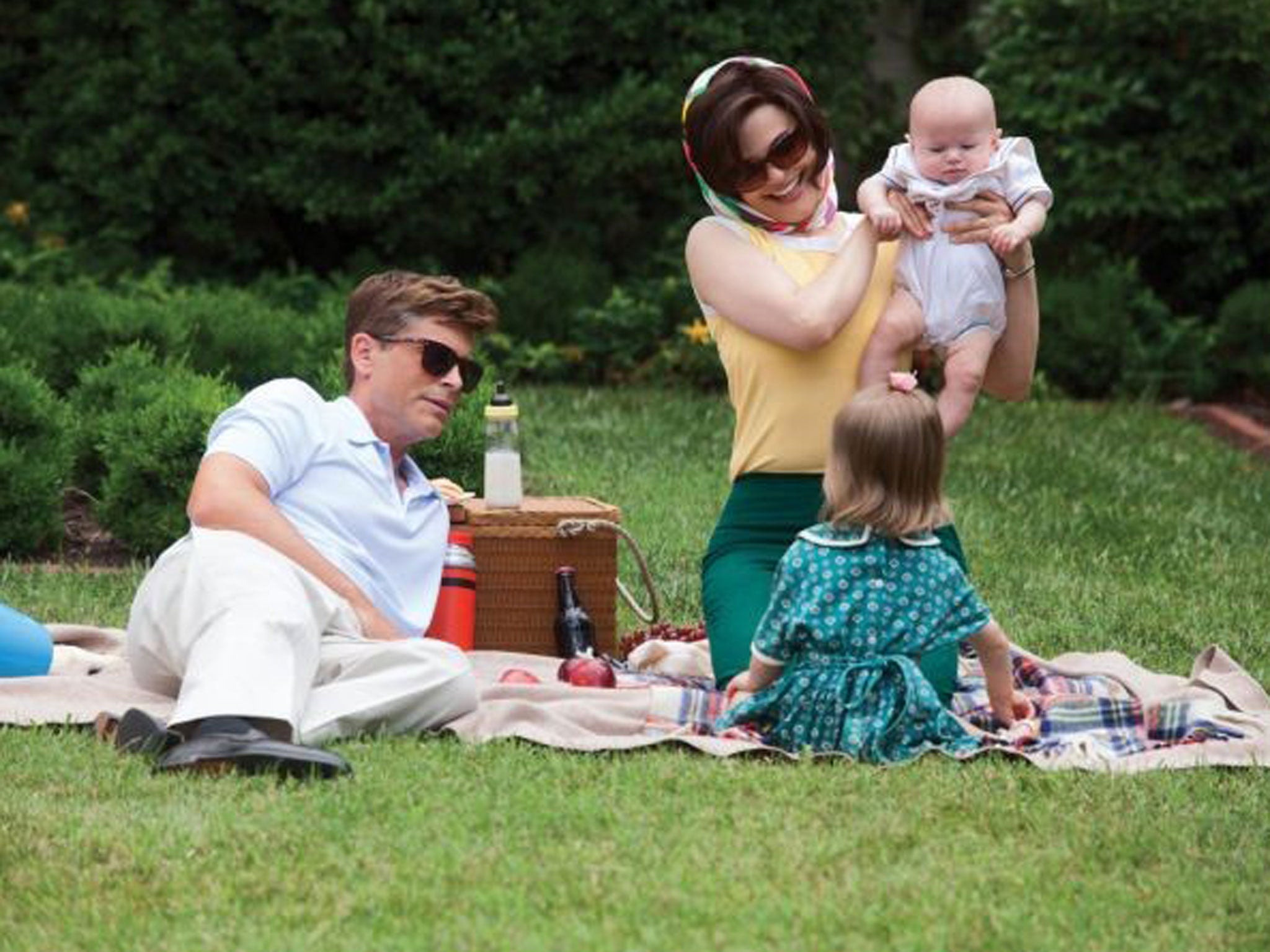The Weekend’s TV: Killing Kennedy and Stonehenge: Walking Through History (both Channel 4)
Tale of two lives gets to the truth behind the death of the American Dream

There were many ways for television to mark the John F Kennedy assassination and we saw most of them in the run-up to this weekend's anniversary. BBC2 gave us a family portrait in Kennedy Home Movies, there were cuckoo conspiracy theories in Channel 5's JFK's Secret Killer and historical context in More 4's Kennedy's Nuclear Nightmare. If you were after the straightforward story, last night's Killing Kennedy (Channel 4), a made-for-TV movie, was your best option; a surprise, perhaps, given that it is adapted from a book by the controversial right-wing commentator Bill O'Reilly.
Rob Lowe, the famously handsome star of The West Wing, played the famously handsome president and he had those Bostonian vowels down pat. It's only a shame that a Massachusetts “for it” sounds indistinguishable from “fart” to British ears, as Lowe's Kennedy was “for” a lot of commendable things.
Passable lookalike Ginnifer Goodwin (Big Love, Once Upon a Time) played Jacqueline Kennedy and both actors struggled admirably against the kind of made-for-TV script that can't resist a bit of heavy foreshadowing. There was one notably clunky conversation in which the First Lady told the President: “The one thing I could never bear is to lose you,” and he told her, “I want to you be very careful around that Onassis character.” Ah, if only they knew...
Unlike the Oliver Stone film on which many base their “knowledge” of this period, Killing Kennedy stuck rigidly to the Warren Commission orthodoxy, and yet still offered a new angle. While the events in JFK's life between 1959 and his death are the stuff of history lessons, what's less well known is how Lee Harvey Oswald spent those same years.
While JFK was preparing to announce his candidacy for president, we saw Oswald in Moscow, attempting to renounce his US citizenship; and when the Kennedys were mourning the death of their baby son Patrick, the Oswalds were welcoming a second daughter into the world; and on 25 November, when JFK was receiving a state funeral, attended by thousands, Oswald was buried also, with so few mourners that reporters had to be recruited as pall bearers. It was the cumulative effect of these parallels, rather than any particular scene, which got closest to explaining the inexplicable: what really happened that day.
Tony Robinson, at least, has made his peace with the unknowable secrets of history. When your topic is neolithic Britain, you have to, since, as soon became evident in last night's Stonehenge: Walking Through History (Channel 4), nobody really knows anything at all.
Nearly two decades of Time Time means Robinson is already familiar with many of the sites of this week's location, Wiltshire, but as he explained, walking between them is the best way to gain a more intuitive understanding. So, off he trotted, in his best North Face anorak and a nerdy rucksack, meeting with various archaeologists along the way.
They told him that Silbury Hill might have been made by pilgrims bringing baskets of earth from home – or it might not; that West Kennet may have been the site of ancestor worship – or it might not; and that Stonehenge was intended to be approached during the midwinter sunset. Or not. The landscape was so impressive and the mystery so evocative that seeking certainty seemed less and less important.
Instead, Robinson enjoyed Wiltshire's Wicker Man vibe, got involved in a hippie-dippy escapade with some dowsing rods and made time to chat about crop-circle creation with the locals over a pint of warm ale. This episode of Walking Through History was more in touch with 1970s Britain than Stone Age Britain, but no less enjoyable for it.
Subscribe to Independent Premium to bookmark this article
Want to bookmark your favourite articles and stories to read or reference later? Start your Independent Premium subscription today.

Join our commenting forum
Join thought-provoking conversations, follow other Independent readers and see their replies